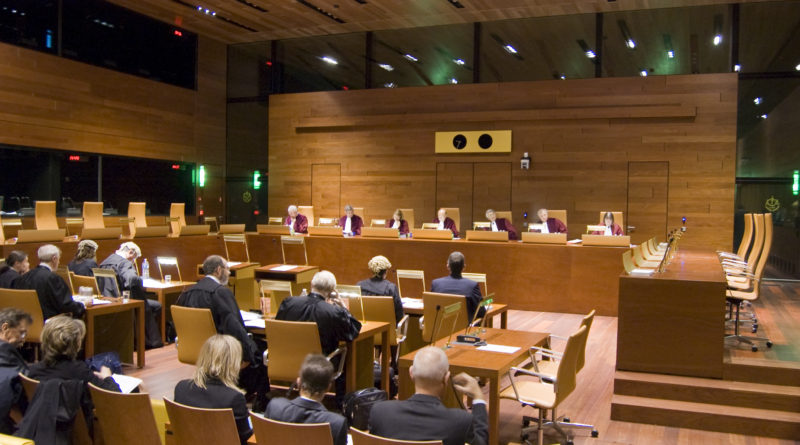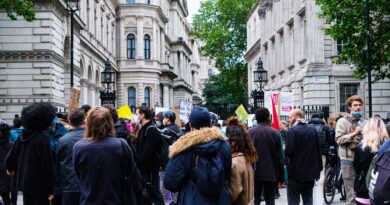Brits fighting in courts to keep EU rights
When the UK Supreme Court this week dismissed the government appeal and ruled that Brexit has to be approved first by the parliament, it was not only Gina Miller, the person who brought the main case, to rejoice. A number of campaigning groups involved in the institutional dispute celebrated too. Among them there was Fair Deal for Expats, an organisation set up in France to defend the rights of British people living in other EU countries.
“We are delighted and relieved by the decision of the Supreme Court today. There can now be proper control by the British people elect over the process of the UK leaving the EU,” commented the chair, John Shaw.
In an emotional statement outside the court, he said: “Together with 3 million nationals of other European countries who live in the UK, we are the people who will be most profoundly affected by all of this. Everything people in Britain take for granted in daily lives, rests, for us, on our being EU citizens: from being able to work, to accessing vital healthcare and our children’s education. This is the human side of Brexit.”
Fair Deal for Expats joined the main case as interveners and, supported by Henderson Chambers, were heard in court about the potential loss of EU citizenship rights.
They also have another open case, brought before the European Court of Justice against the European Commission. “The Commission president, Jean-Claude Juncker, banned staff from entering in discussion with the British government until Article 50 is triggered. We believe that freedom of speech is a key right of Europeans, so we want this order lifted as it harms our rights,” explains Shaw. This case may not go as far as the one in the UK, as the “no negotiation before notification” rule has been agreed by European leaders at the European Council in December. But the group is prepared to continue the fight for EU rights in courts.
“There have been a lot of petitions in the aftermath of the EU referendum. Some of them compelled the government to respond and the parliament to debate. But they stirred no action, zero impact. Petitions are not going to change the agenda of this government, they will only listen to courts,” says Shaw.
From a village in France
Fair Deal for Expats was founded two days after the EU referendum in Lauzun, a village in the department of Lot-et-Garonne, in south-western France. There were 35 people at the first meeting, and among them a couple of lawyers specialised in class actions. So it was decided to establish an organisation that could defend the rights of British people across the EU in courts. The group has now some 400 members, who cover legal and operational costs through membership fees. Some 800 are connected through the Facebook page.
“As we achieved the first result, we will be calling on the government and the European Commission to ensure hard guarantees are put in place about what the future holds for such a large number of ordinary people. We ask that governments across the EU do the same,” said Shaw after the Court ruling. “We also worry for EU nationals in Britain. There should be firm guarantees from the British government,” he added.
The next objective of Fair Deal for Expats is to inform members of parliament and everyone involved in the Brexit process of the real impacts for European citizens. “It is a major loss of rights and all European governments will have to agree on providing guarantees,” he continues. “We are fearful. There will be elections in many European countries in the next two years. Who knows what will happen. With the surge of nationalism, this process comes at a very bad time for Europe. But it is the result of many governments losing touch with poorly-paid people, of huge gaps between big businesses and normal citizens whose opinions have not been respected.”
A British citizen of the world
Shaw is what some may call a “citizen of the world.” Born in India from Scottish parents, he finished school in Scotland, was employed in the UK for 10 years, then worked in Kenya, Tanzania and Cyprus. Back in the UK, he run a business through Poland, the Czech Republic, Hungary and France. In 2002 he was diagnosed a cancer. “When it was clear I would survive, I promised my wife to rebuild the business and retire early to spend time with her, abroad again,” he says. “We love the European climate and people. When I retired, we travelled in Europe for two years deciding where to live. South-western France turned out to be a good place. We now live in a sociable village, where we have French and English friends.”
His personal experience makes him worry especially about healthcare. “Many British pensioners are entitled to join the healthcare systems of the EU countries in which they live. These rights will be lost, leaving thousands of expatriates unable to receive treatment. So it is really a matter of life or death,” he said.
Claudia Delpero © all rights reserved.
Photo © Court of Justice of the European Union.





